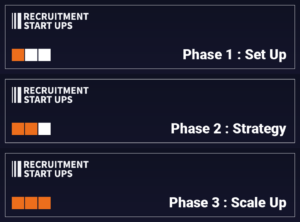The days of running a business solely for profit are behind us and if you haven’t tapped into the importance of Corporate Social Responsibility (CSR) now is the time to do so.
Having a well thought out CSR strategy ensures that your company operates in an ethical and sustainable way, dealing with its environmental and social impacts.The days of running a business solely for profit are behind us and if you haven’t tapped into the importance of Corporate Social Responsibility (CSR) now is the time to do so.
Having a well thought out CSR strategy ensures that your company operates in an ethical and sustainable way, dealing with its environmental and social impacts.
Some companies hold the view that a CSR strategy is a ‘nice-to-have’ rather than business critical policy however, recent studies differ in this view. Research has shown that 91% of global consumers expect businesses to do more than just create a profit but to also operate responsibly to address social and environmental issues. While 90% of consumers would boycott a company if they learnt of irresponsible or unethical business practices.
If your consumers, be it clients or candidates, are considering your stance on CSR, why aren’t you?
Oftentimes, there is a perception that implementing a CSR strategy is costly for minimal reward outside of a little positive PR however, when you assess the impact on your overall business, it is clear where the true impact lies.
So how will my business benefit from a robust CSR strategy?
A CSR strategy can support your goal of becoming an employer of choice while engaging and motivating your current employees. To be an employer of choice, you need to attract motivate and retain, highly sought-after people. Today, talent pools have access to more information about your company than ever before. Thanks to the likes of Google reviews, Glassdoor etc candidates can find a lot out about your business before clicking the apply button.
So, what are they looking for? Potential employees want to work for “high impact” organisations where they feel they can make a true positive impact. Engaging in CSR may help your business attract this top talent. A survey by the non-profit Net Impact found that 72% of students about to enter the workforce stated that when applying for roles, they considered positions where CSR was highlighted.
Similarly, to your potential employees, a strong CSR policy could improve and enhance relationships with clients. Executing your business in a socially responsible and ethical way builds trust with your clients. This trust may overtake other buyer considerations considering 88% of consumers are more likely to buy from a company that supports and engages in activities that improves society.
When your employers and clients are happy and trust a business, they become a free marketing tool – the more they love the business, the more likely they are to tell others about it. Happy customers are likely to tell 2-3 others about the experience whereas, a dissatisfied customer will tell 8 – 10 people.
Finally, a well-executed CSR strategy that can help save money on business operating costs. A CSR policy will often include a business joining a green accreditation scheme in order to operate more sustainably. Reducing your carbon footprint plays a large part in this and finding ways to do so often require a large process audit. Using less electricity, paper and resources will ultimately save you money as well as improving on business reputation. Win, win!
So where should you start with a CSR strategy?
There are a hundred of things you can look to change and improve but here are some things to consider:
- Improving work standards and conditions– ensuring your business runs in a fair and motivating way, putting structures in place that ensure an inclusive working environment
- Engaging employees in a meaningful way – opening lines of communication to your workforce encouraging them to voice concerns or areas of improvement
- Being involved with the community – find a charity or association that aligns with your business values and support it
- Environmental Management – focus on your waste reduction & sustainability
- Responsible Sourcing – auditing suppliers ensuring their labour, health, safety and their stance on environmental practices
Implementing a robust CSR strategy doesn’t happen overnight. Here at Hinterview, we have focused on our waste reduction heavily through 2019 and into 2020. Implementing robust recycling systems as well as moving to a paperless office with a goal of 2021. We have investigated our software providers and offline business providers choosing more sustainable options wherever possible -simple changes can make a huge impact.
Charity is at the heart of Hinterview and we recently held our second Hintelligence quiz raising much need funds and awareness for two of our chosen charities.
If you haven’t got a CSR strategy as part of your business roadmap think again, it could cost you heavily reputationally and otherwise.
Share :



